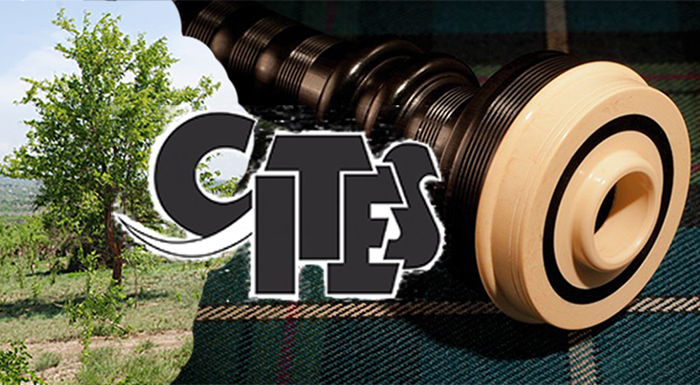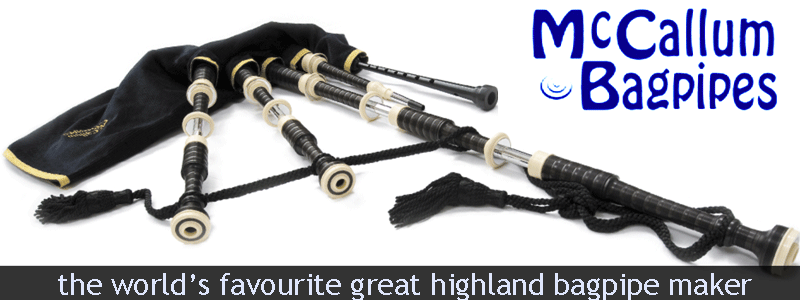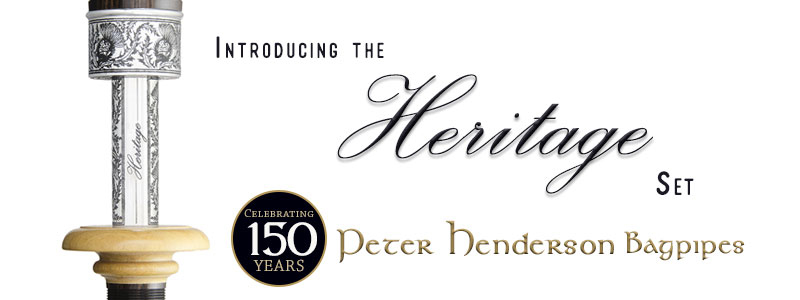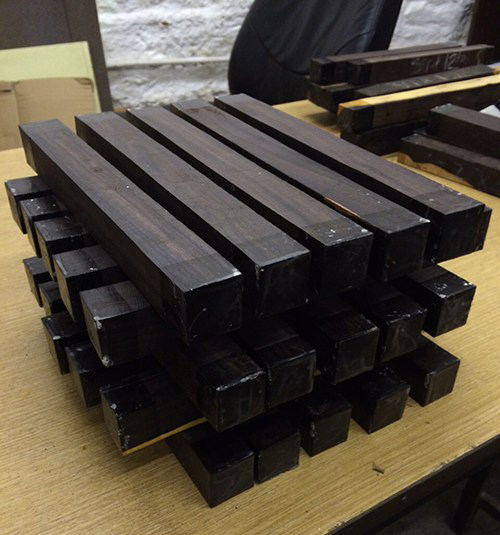
By Robert Wallace
Bagpipemakers and other musical instrument manufacturers have finally won their battle over the use of African blackwood (ABW). For almost three years UK pipe makers have had to apply for costly licences for every set of pipes they export outwith the EU. These costs have had to be passed on to customers.
An earlier announcement that restrictions were to be lifted last March was put on hold after a CITES meeting in Sri Lanka was cancelled because of the hurricane there.
Now from the end of November the expense and time-consuming paperwork will end. The Convention on International Trade in Endangered Species (CITES) agreed at their meeting in Geneva on August 28 that finished instruments should be exempt from protection legislation as it applies to dalbergia melanoxylon, ABW.
An industry working group had been looking at the whole issue. It had seriously affected trade in musical instruments. Bagpipemakers were a small but important part of the worldwide pressure placed on CITES by their 2017 ruling.
Representations have been listened to and now finished instruments are to be exempt from the licence requirement. The new ruling will come into place on November 26 and will be limited to shipments of 10kg per shipment which is 3-4 sets depending on the specification.
[wds id=”2″]Bagpipe repairs will also be exempt. To quote CITES, the new ruling will cover ‘finished musical instruments, finished musical instrument parts and finished musical instrument accessories’.
Controls on ABW, dalbergia melanoxylon, and other protected wood species will remain for wood importers and exporters and the rule change is dependent on the manufacturers sourcing their blackwood from a legitimate and licensed hardwood importer. All UK bagpipe makers already comply with this requirement.
CITES red tape was adding around £65 to the average cost of a set of pipes, though the license applied per shipment so this could be spread by packaging two or three sets or more together.
Now, provided manufacturers retain paperwork proving their wood came from an authorised dealer they can, from November 26, sell their finished instruments without any ‘endangered species’ requirement or impediment.
However UK bagpipe manufacturers are advised to contact the UK CITES Management Authority next month to confirm the details of how the changes will affect them. UKCMA said: ‘The changes decided in Geneva will not come into effect immediately, and at the present we are unable to provide further information on the scheduling.
‘We recommend instrumewnt manufacturers contact us again in October as we should have a better idea then of how we will move forward.’
Martin Cowell of David Naill & Co: ‘We are very pleased by this ruling and look forward to its application in late November. It did not make sense to have our wood regulated at both the import and manufacturing stage. All of our raw material is of course from sustainable sources.’

Craig Munro, Managing Director of Wallace Bagpipes, said: ‘This is the best Christmas present any bagpipemaker could have.
‘The CITES regulations were an impediment to business and costly and time-consuming for everyone involved.

‘African blackwood will still be protected. That is very important, but from late November instrument makers can continue their businesses without additional paperwork and cost.’
Stuart McCallum of McCallum Bagpipes said: ‘We at McCallum Bagpipes are absolutely delighted that this regulation is to be lifted.
‘As manufacturers we will still have to make sure all our raw wood is CITES authorised and that is as it should be. We will be more than happy to comply with this.’

Alastair Dunn of RG Hardie said: ‘Any change in legislation that reduces administration cost is welcome.
‘The cost to a business is not just the value of the permit. We also deal with the administration time in filling out permit applications, payment processing and resolving incorrectly processed shipments with customs and couriers.’

CITES are now engaged in further definition of ‘the terms ‘musical instruments’ and ‘transformed wood’, in order to facilitate their use and understanding by CITES authorities, enforcement officers, exporters and importers.’
A CITES statement from Geneva dated August 28 reads: ‘The triennial World Wildlife Conference, concluded here today after adopting an impressive list of decisions advancing the conservation and sustainable use of wildlife across the globe.

‘The Conference revised the trade rules for dozens of wildlife species that are threatened by unsustainable trade linked to overharvesting, overfishing or overhunting. These ranged from commercially valuable fish and trees to charismatic mammals such as giraffes to amphibians and reptiles sold as exotic pets.
‘The conference amended an earlier Appendix II listing of rosewoods and related tree species to ensure that small finished items, including musical instruments, parts and accessories, [PP emphasis] could be carried across borders without the need for CITES permits.
‘Humanity needs to respond to the growing extinction crisis by transforming the way we manage the world’s wild animals and plants. Business as usual is no longer an option,’ said CITES Secretary-General Ivonne Higher.
‘CITES conserves our natural world by ensuring that international trade in wild plants and animals is legal, sustainable and traceable. Well-managed trade also contributes to human wellbeing, livelihoods and the achievement of the 2030 Sustainable Development Goals,’ she said.
The conference was attended by 169 member governments (plus the EU) and some 1,700 delegates, observers and journalists.
[wds id=”8″]


















what about travelling with a vintage set over 150 years like Mac Dougall or Glen made of black ebony and ivory mounts. Are there any chances to be stoped at borders by custom and being confiscated ?